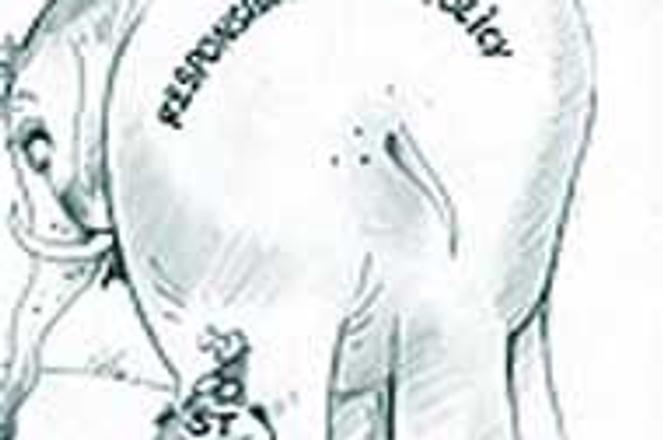illustration: Igor Lyskov
Deputy Prime Minister for Economy Ivan Mikloš is one of the few Slovak politicians who think the country's media is doing a good job. On an October 26 talk show on TV Markíza, he said he thought the media's appetite for scandals involving cabinet members had helped to keep the government honest, and that its critical approach was appropriate.
If he had one suggestion, Mikloš added, it would be that the media leaven their diet of criticism with some reference to the good economic results Slovakia has produced this year. Interest rates have fallen from 18% to around 12%, Mikloš pointed out, while the government now sells state bonds for 15%, rather than the 30% paid by the Mečiar government. Slovakia looks likely to meet its goal of cutting the current account deficit to 5-6% of GDP in 1999 from over 10% for the last three years, while the budget deficit will come fairly close to hitting the 15 billion Slovak crown target the government set back in April.
Mikloš is right. Somewhere among the gory details of debt settlement, the Nafta Gbely affair and the resignations of two ministers, the press forgot that there is another, brighter side to Slovakia's post-Mečiar recovery. The government isn't a viper's nest of opportunists and self-serving cleptocrats, however much it may seem that way in the pages of Slovak dailies.
No journalist likes to be seen as being soft on government corruption, and perhaps this explains the savaging the cabinet has taken over the last eight months - after working so closely with the current government parties when they were in opposition, maybe Slovak papers now err on the side of cruelty to protect themselves from charges of cozying up to Dzurinda's cabinet.
But it wouldn't hurt to report a little good news now and then. Recent positive reports produced by the International Monetary Fund and Moody's Investor Services show that you don't have to look to far to find something positive to write about.


